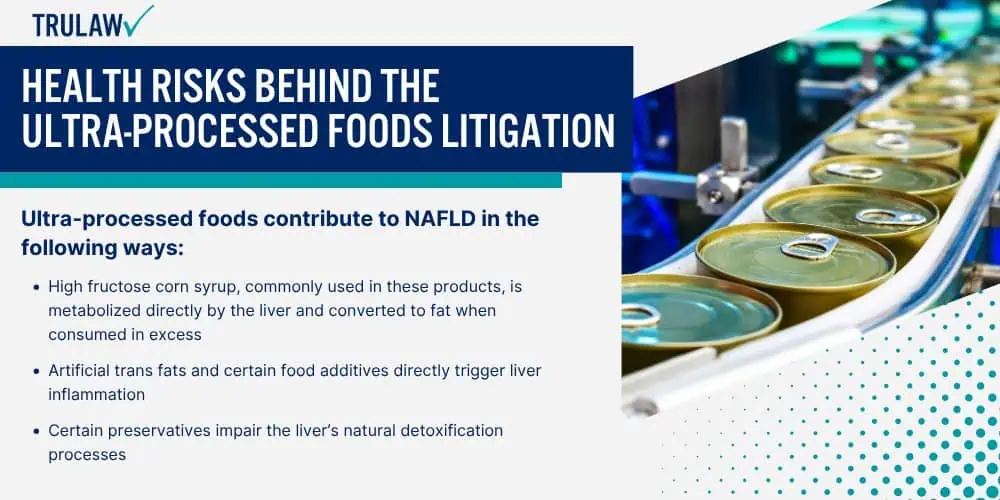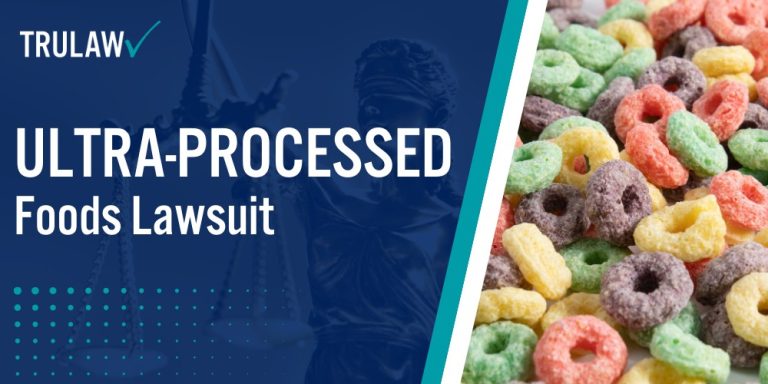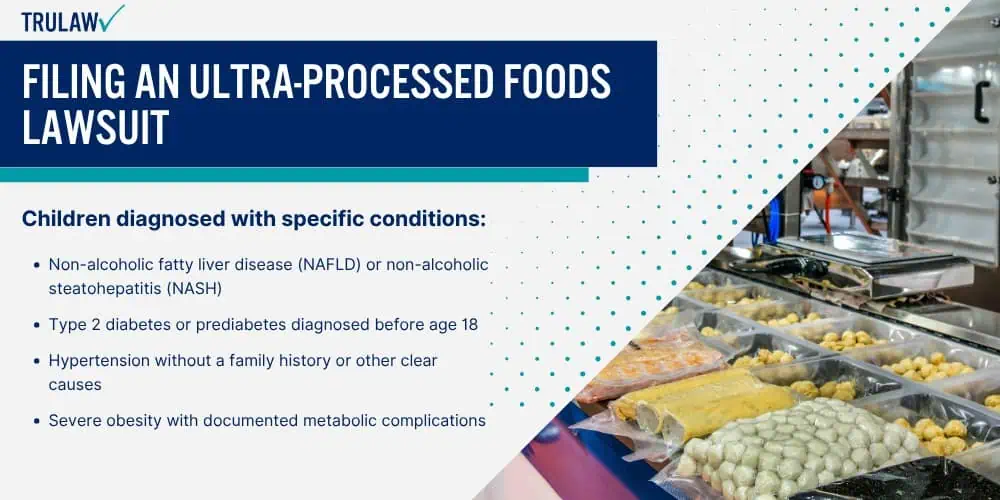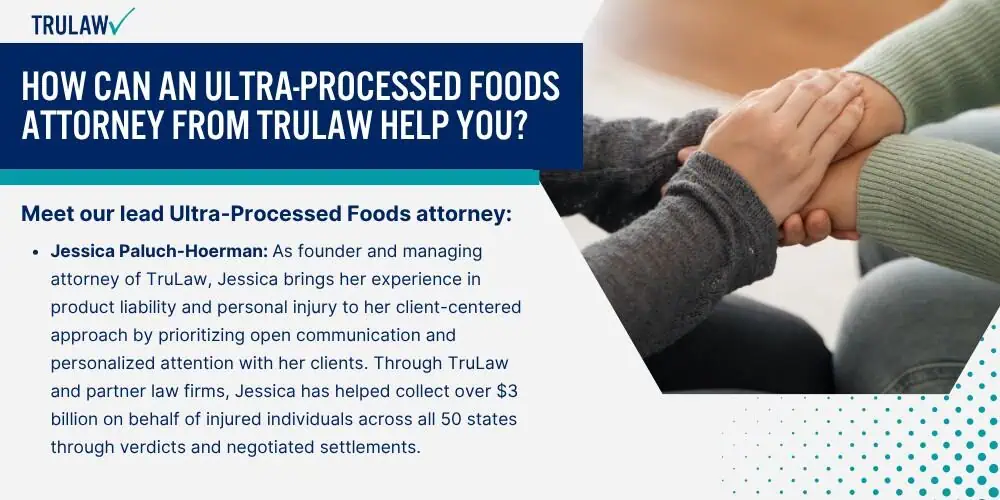The Ultra-Processed Foods Lawsuit targets major food corporations including Kraft Heinz, Mondelez, Coca-Cola, PepsiCo, and Nestle for their role in the chronic disease epidemic affecting Americans.
Filed in December 2024, this groundbreaking legal action addresses how these companies manufacture and market products containing high fructose corn syrup, hydrogenated fats, and other harmful ingredients linked to fatty liver disease, cardiovascular problems, and childhood obesity.
The lawsuit specifically alleges these corporations knowingly designed addictive food products while failing to disclose their connection to serious health risks.

Type 2 Diabetes Risk
Ultra-processed foods dramatically increase type 2 diabetes risk through multiple mechanisms.
According to the National Institute of Diabetes and Digestive and Kidney Diseases, these products create dangerous blood sugar spikes followed by insulin surges, gradually damaging the body’s ability to properly regulate glucose.
Studies cited in the Ultra-Processed Foods Lawsuit show children who regularly consume these products have up to 2-3 times higher risk of developing prediabetes before adulthood.
The Centers for Disease Control and Prevention reports particularly alarming trends among minority youth, with rates of new-onset type 2 diabetes increasing most dramatically among populations targeted heavily by ultra-processed food marketing.
Parents involved in the UPF Lawsuit frequently report that their children’s diabetes diagnoses came as a shock, with many unaware that products marketed as “quick energy” or “convenient snacks” could contribute to permanent metabolic damage.
The litigation documents detail how manufacturers’ internal research identified blood sugar impacts but failed to communicate these risks while continuing to target young consumers.
Hypertension: Elevated Blood Pressure & Risk of Cardiovascular Disease
The excessive sodium content in ultra-processed foods creates significant blood pressure risks, even in children.
The National Heart, Lung, and Blood Institute confirms that high-sodium diets force the body to retain water to dilute the salt, increasing blood volume and pressure against arterial walls.
Medical records reviewed in the Ultra-Processed Foods Lawsuit reveal children as young as 10 developing hypertension after consistent ultra-processed food consumption.
Many ultra-processed products contain 2-3 times more sodium than recommended daily limits, with some children’s meals delivering an entire day’s sodium in a single serving.
The litigation documents how manufacturers could have reduced sodium content but chose not to, citing concerns about decreased “flavor impact” and “consumer acceptance.”
Parents joining the UPF Lawsuit report their children’s blood pressure normalized after significantly reducing ultra-processed food consumption, demonstrating the direct relationship between these products and hypertension.
Non-Alcoholic Fatty Liver Disease (NAFLD)
Perhaps the most alarming condition highlighted in the Ultra-Processed Foods Lawsuit is NAFLD.
This disease occurs when excess fat accumulates in liver cells, causing inflammation and potentially permanent damage.
Research from the National Institutes of Health demonstrates that children with NAFLD show a distinctive pattern of liver injury that makes early detection challenging.
Ultra-processed foods contribute to NAFLD in the following ways:
- High fructose corn syrup, commonly used in these products, is metabolized directly by the liver and converted to fat when consumed in excess
- Artificial trans fats and certain food additives directly trigger liver inflammation
- Certain preservatives impair the liver’s natural detoxification processes
Documents obtained during the Ultra-Processed Foods Lawsuit investigation suggest manufacturers were aware of potential liver impacts but conducted limited safety testing for these specific effects.
Unlike adult NAFLD, pediatric cases often begin with inflammation in the portal regions of the liver.
This different disease pattern means children can develop significant liver scarring before conventional tests detect problems.
The litigation presents evidence that some children developed advanced fibrosis (liver scarring) within just 2-3 years of regular ultra-processed food consumption.
The U.S. Food and Drug Administration has acknowledged gaps in monitoring these combined effects, as many ingredients are tested individually rather than in the complex mixtures found in finished products.
Parents participating in the UPF Lawsuit frequently report that medical professionals never warned them about these potential liver effects.




